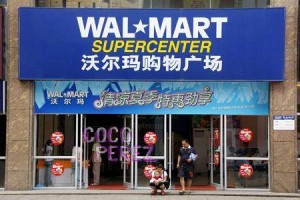Wal-Mart was forced to close some of its stores in China when they were accused of selling mislabeled pork. Wal-Mart started labeling their pork products as ‘Organic’ in a quest to increase profit. As studies reveal the side-effects of unhealthy modified foods, companies take desperate measures to promote sales, as seen in this case.
The pork which they were selling contained an addictive called ‘Clenbuterol’ which was the cause of sickness of many people in China. This drug helps produce leaner meat but is dangerous for people with heart problems. Official reports reveal that a total of 63,547 kilograms of pork was involved over a span of two years. This led to a closure of 13 Wal-Mart stores in China.
This case highlights the importance of following ethical methods of production. False advertising may lead to profits in the short run but in the long run, it damages the image of the company. A brand must therefore be careful while indulging in any such activities. A company, in order to survive in the competitive market, must adapt themselves to the environment of the country they are operating in. Respecting sentiments of the public and laws of the government are pre-requisites for survival for even the most reputed companies; Wal-Mart in this case.
Source : BBC NEWS


